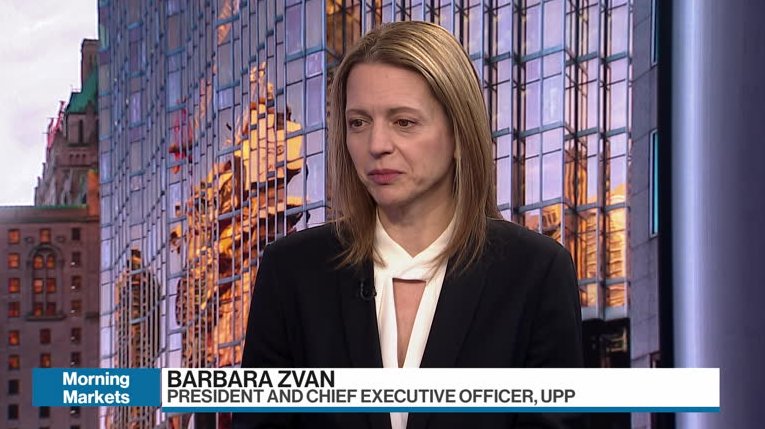Valuing a startup is anything but simple. Forecasting risk is high and many of these businesses aren’t even generating revenue yet. This makes the process extremely difficult for founders and venture capitalists alike.
At @bizval., we believe that the same valuation principles used in established businesses can also be used for startups. There’s no reason why the approach taken by sophisticated financial investors can’t be adapted for early-stage companies.
In this webinar, @bizval. co-founders Graham Stephen and The Finance Ghost explain the methodology developed at @bizval. and the approach taken to valuing start-ups.
00:00 – 01:43 Graham Stephen Founder and CEO: Introduction
01:43 – 01:59 Poll How do you define a Startup
01:59 – 02:10 Previous webinars http://www.youtube.com/@bizval.
02:10 – 04:44 Characteristics of a Startup: What is a Startup and why is it important to value a Startup (Thought starters)
04:44 – 08:20 TFG (Co-founder): Startups: Beware the revenue multiple. Startup valuations are notoriously difficult and shrouded in mystery, making reference to a limited and usually inappropriate data set of “similar deals” where only the revenue multiple was disclosed. There are numerous problems with this approach: First principle: why is the baseline assumption that the comparative deal was the “right” valuation? Valuation multiples vary wildly across jurisdictions (especially US vs. rest of developed world vs. emerging markets) and macroeconomic conditions (high interest rate vs. low interest rate environments), making comparability extremely limited. Revenue multiples make no allowance for structurally different unit economics / margins / scale opportunities across different business models, as only top-line revenue numbers are considered in this basic valuation technique.
08:21 – 09:22 Our Approach – Optimism, meet realism: 1. Startups start with the founders: we engage directly and ask a wide range of questions (including the hard ones) about the business, thereby assessing the level of experience and expertise behind the forecasts.
09:24 – 10:39 2. Spreadsheets are easy, real life is hard: we work through the forecasts and unpick the business plan, looking for key “off the spreadsheet” concepts like allowance for entry of competitors, risks of delays and overruns etc. – we want to know where it can go wrong, not just where it can go right.
10:40 – 11:57 3. Cautious optimism: we build a financial model that makes it simple to test the key drivers of value, while considering the unit economics and scale-level margins of the opportunity, as well as the likely overheads along the way.
11:58 – 13:00 4. Allowance for optionality: startups really can make it big, so we build a “blue sky” case and put a weighting on it based on the robustness of the business plan, the depth of the founders involved and the inherent flexibility in the business case that will allow for pivots / add-ons.
13:01 – 14:05 5. Test for dilution: the financial model reveals the likelihood of future capital raises and allows a valuation to be forecast for each capital raise, giving a reasonable view of the likely dilution facing existing shareholders and what that means for future values and risk.
14:06 – 15:50 6. Sensitivity tables have the answers: a startup is always a leap of faith and investors will have different risk tolerances, so our final output is a set of sensitivity tables that allow you to answer the all-important question: “What do I need to believe to be true to invest at this level?”
15:50 – 17:28 Conclusion: Our Approach – Optimism, meet realism.
17:29 – 18:17 Graham Stephen (CEO) Client insight
18:18 – 43:55 Questions and Answers:
Question 1: Does a service / consulting business get valuated in the same manner?
Question 2: What is the most outrageous valuation you’ve seen? And why, of course.
Question 3: How do we go about valuing us for a seed raise?
Question 4: Do you ever get tempted to invest in the businesses you work with?
Question 5: How do you value a start up with a novel concept and no comparable businesses in the market?
Question 6: In your models you presumably use a discount rate %. For start ups how do you arrive at the appropriate/fair rate as that can make a huge difference to value?
Question 7: What information do I need to have a valuation done?
Question 8: What are main considerations when a startup is facing financing options (standard facilities through commercial banks, concessional debt through organisation etc.) versus issuing equity?
Question 9: What are the impacts on valuations with these different options?
43:55 – 46:37 Key Take out and closing thoughts – Graham Stephen and TFG
46:37 – 47:02 Freebie: Visit https://bizvalglobal.com/#express and take your first step with @bizval. express: an instant, independent and simple way to value your business.
#business #valuations #startup #founder #knowyourvalue #bizvalglobal #entrepreneur #fypシ










![Venture Capital Partner Elicia McDonald: How to Stand Out From the Crowd in Investing [Video]](https://StartupBusinessReady.com/wp-content/uploads/2024/05/mp_463640_0_0jpg.jpg)

![Private Equity Firms Gain Enhanced Cyber Due Diligence and Portfolio Assessments with New Tool from BlackSwan Cyber [Video]](https://StartupBusinessReady.com/wp-content/uploads/2024/04/mp_459779_0_hqdefaultjpg.jpg)
